14 Skincare Mistakes That Are Aging Your Skin—And How to Fix Them

We all want to “age gracefully,” minimizing wrinkles and making sure our skin stays healthy and glowing. But keeping this youthful appearance can be a challenge—and while your skincare routine is intended to prevent the effects of aging, you could also be making mistakes that inadvertently make you look older.
“Taking care of your skin is essential because as we age, our skin gets thinner, saggier, and wrinkled largely due to the reduced production of collagen, a key protein in our skin that is essential for maintaining skin elasticity and firmness,” Paul Charette, master aesthetician and founder of Charette Cosmetics, tells Best Life. “Our skin is constantly being exposed to the elements of life such as environmental pollutants, dirt, excess oil, bacteria, and other factors your facial skin encounters daily. That is a lot for your skin to handle every day, which is why as we get older, the damage becomes more noticeable—especially if nothing is being done to counteract the damage.”
Many of us take steps to prevent or slow these changes ahead of time rather than searching for a treatment after we notice them in the mirror. However, if you’ve been taking certain approaches in your skincare routine and haven’t noticed improvements, you might want to take a step back. Read on for the 14 skincare mistakes that are aging your skin, and learn how to fix these common blunders.
RELATED: 8 Foods That Help Smooth Wrinkles, Doctors Say.
1
Overlooking these 3 anti-aging ingredients
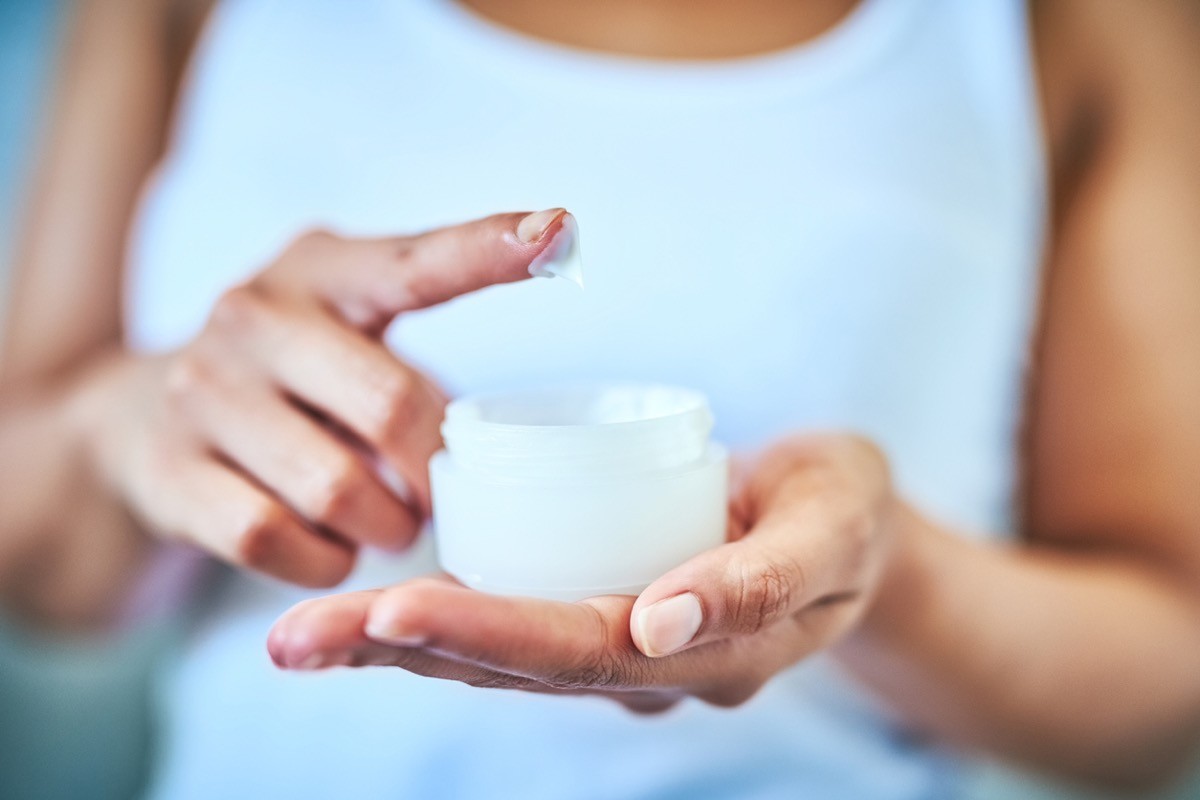
Valerie Aparovich, a biochemist and certified cosmetologist-esthetician at OnSkin, tells Best Life that as one ages, they should look for products that contain ingredients to combat aging skin.
“It would be a mistake not to incorporate cosmetic products with age-appropriate active ingredients that help fade wrinkles, stimulate collagen synthesis, and keep the skin rejuvenated and toned,” she explains. “The top three anti-age stars are vitamin C, retinol, and peptides.”
Each ingredient serves a different purpose for your skin, Aparovich adds. For example, vitamin C “stimulates collagen protein synthesis, promoting the skin’s firmness and elasticity and making decreased skin turgor less visible, possesses brightening properties, helps fade pigmentation, and strengthens capillary walls.”
Retinol promotes skin renewal by speeding up cell turnover and supporting collagen and elastin fiber synthesis, which thickens skin texture to smooth out fine lines and wrinkles. Peptides increase skin firmness and elasticity by impacting collagen synthesis.
RELATED: Dermatologist Says These Are the 6 Best Vitamin C Serums You Can Buy at Walmart and Target.
2
Using a washcloth on your face
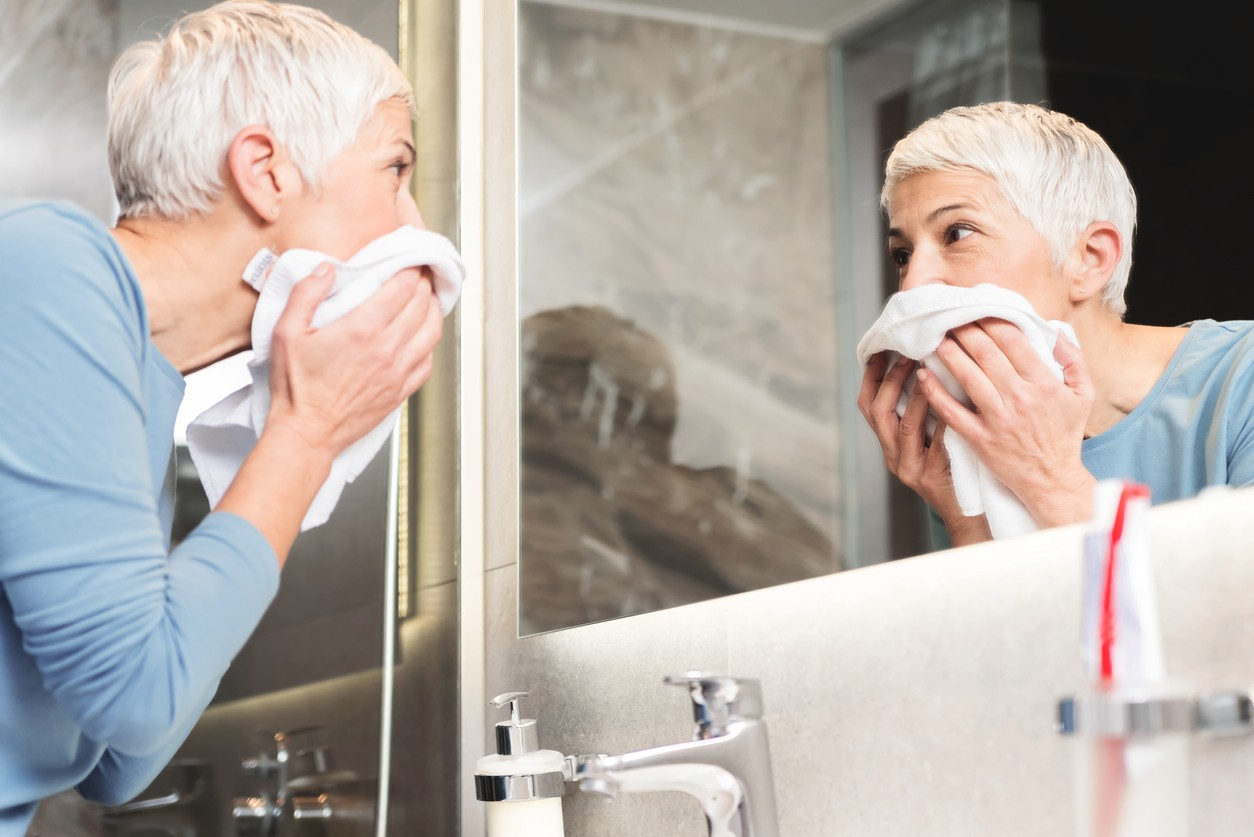
If there’s one thing dermatologists wish you would stop doing, it’s drying your freshly washed face with a bath towel.
“Although a bath facial cloth might look clean, it can collect dirt, dust, makeup, oil, and dead skin cells,” says Anna Chacon, MD, a board-certified dermatologist. “This leads to an increased chance for them to act as breeding grounds for bacteria which will clog pores.” That, in turn, can lead to breakouts and blemishes.
Cheryl Rosen, MD, board-certified dermatologist and director of dermatology at BowTiedLife, brings up another con of this technique: “Bath towels are much rougher than facial towels, so they can actually cause irritation and skin damage.”
To avoid using a bath towel or hand towel, Chacon recommends using a fresh, soft kitchen paper towel instead. “I keep a roll on my vanity table for easy access,” she says. Similarly, Rosen suggests a soft, clean facial towel.
3
Scrubbing your face aggressively

If your bath towels, hand towels, or facial towels are freshly washed, you can use them with a gentle patting technique instead of a rubbing one.
“Never dry your face aggressively,” says Emmanuel Loucas, MD, board-certified dermatologist and director of SINY Dermatology in New York. “Gently wipe your face with a soft towel or, better yet, pat dry your face.”
You’ll want to do this for the same reason you dab eye cream onto the delicate area around your eye: to prevent damage and irritation.
4
Not exfoliating
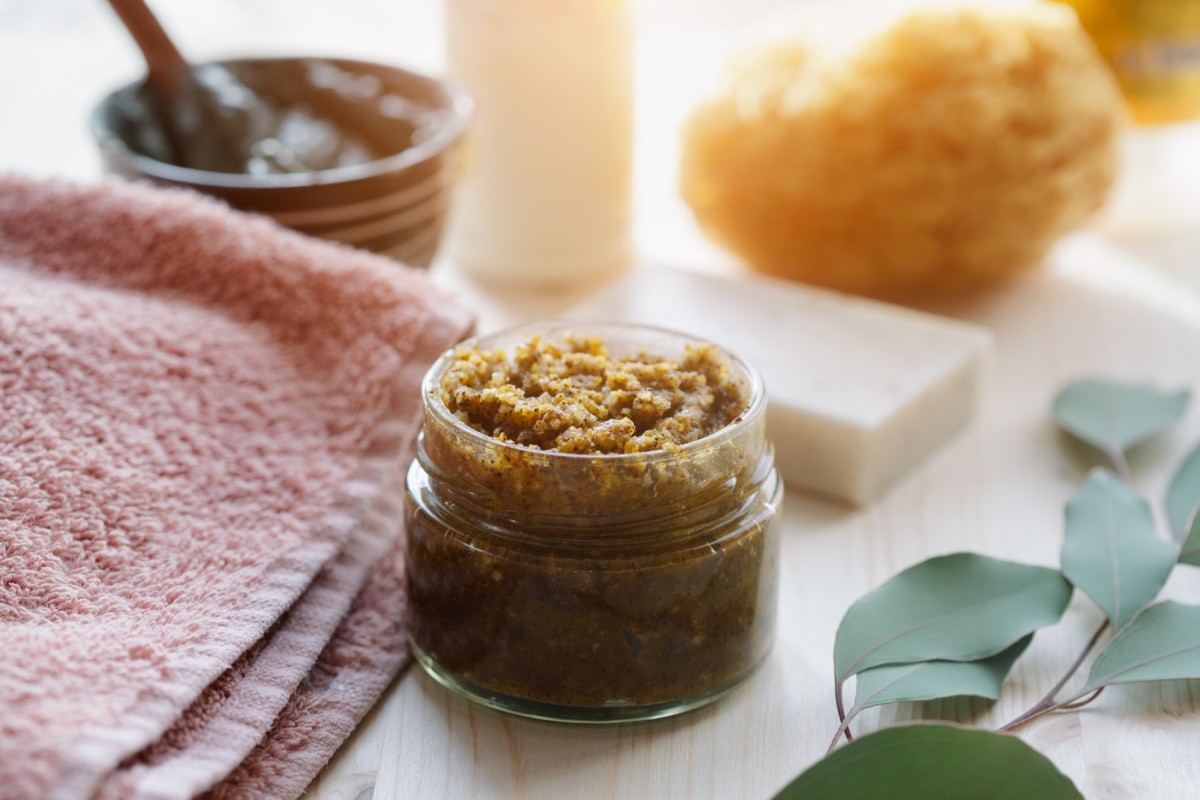
Skipping exfoliation is another skincare mistake that could make you look older. While it’s a common error, according to Charette, you’ll want to fix it as soon as possible.
“It is an important step in skincare routines because it’s an opportunity to eliminate older, dull skin cells that can make you look older and cause your skin to not function at its best!” he says.
“The outermost layer of our skin, called the stratum corneum, is composed of dead skin cells that can make the skin appear dull, rough, and can clog pores. Exfoliation helps to slough off these dead skin cells, revealing fresher, smoother skin underneath,” he explains.
Not sure how often you should exfoliate to avoid overdoing it? Jessica Iturzaeta, licensed esthetician, podcaster behind Learning to Glow, and founder of SJ Skincare, recommends exfoliating one to three times each week, depending on the product you’re using. If you get regular facials, that can make a “big impact” as well, she adds.
RELATED: 10 Daily Habits That Keep Your Skin Young and Glowing.
5
Not using sunscreen
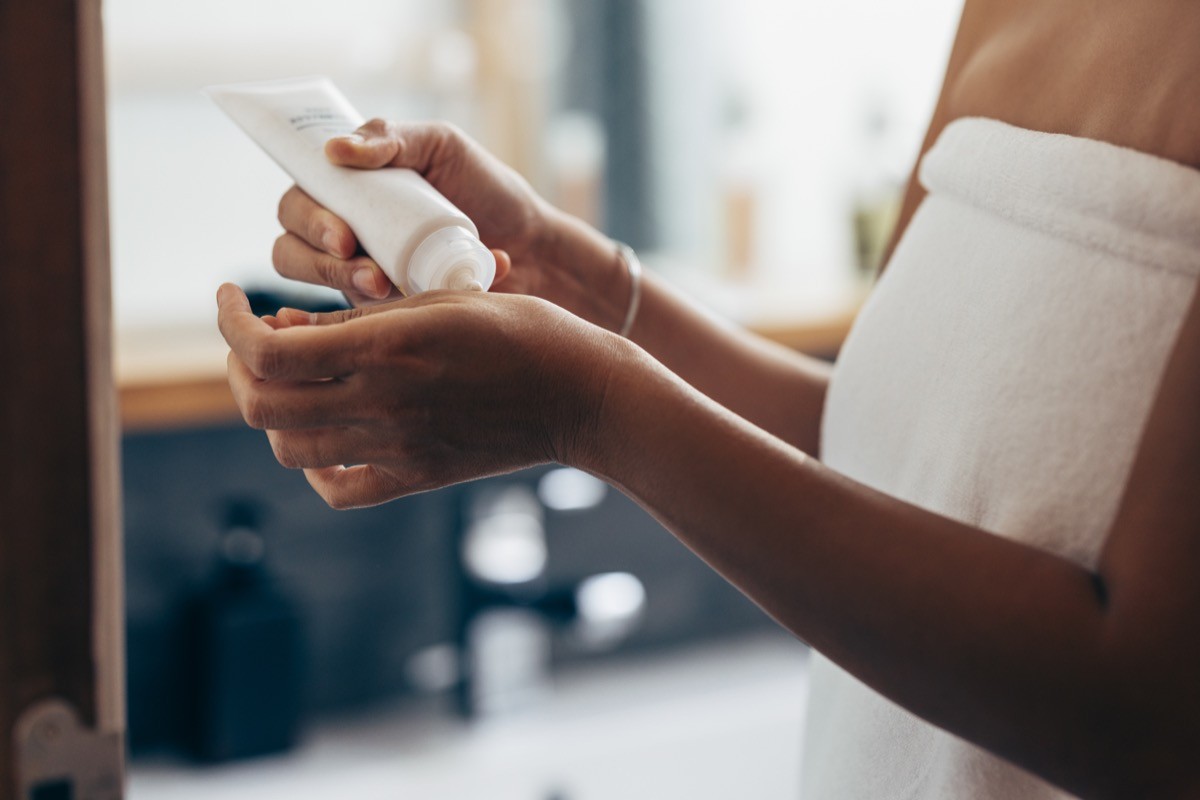
During the summer months, most of us reach for sunscreen to protect against the sun. But SPF is a necessity all year long, even in the winter when you might not think to reach for it.
“A common skincare mistake is skipping out on using an SPF daily just because it might not be sunny out,” Charette says. “Ultraviolet (UV) rays can still transmit through clouds and even window glass, making your skin susceptible to premature aging and wrinkles, which is why protecting the delicate skin on your face…is a crucial part of every skincare routine so you don’t look older.”
“Try opting for a more lightweight moisturizer with a broad-spectrum SPF 50 sunscreen that can be used together for optimal skincare benefits,” he suggests.
According to Rachel Lee Lozina, licensed esthetician, laser technician, and founder of Blue Water Spa, you should also look for certain ingredients.
“Usually, I will recommend a micronized zinc or titanium oxide cream with added antioxidants to help with oxidative damage/aging,” she says. “I love it even more if it comes in a tinted version to minimize the white cast zinc formulations usually have. Ingredients such as hyaluronic acid and squalene will help lock in moisture and hydrate skin.”
6
Only applying skincare products to the face
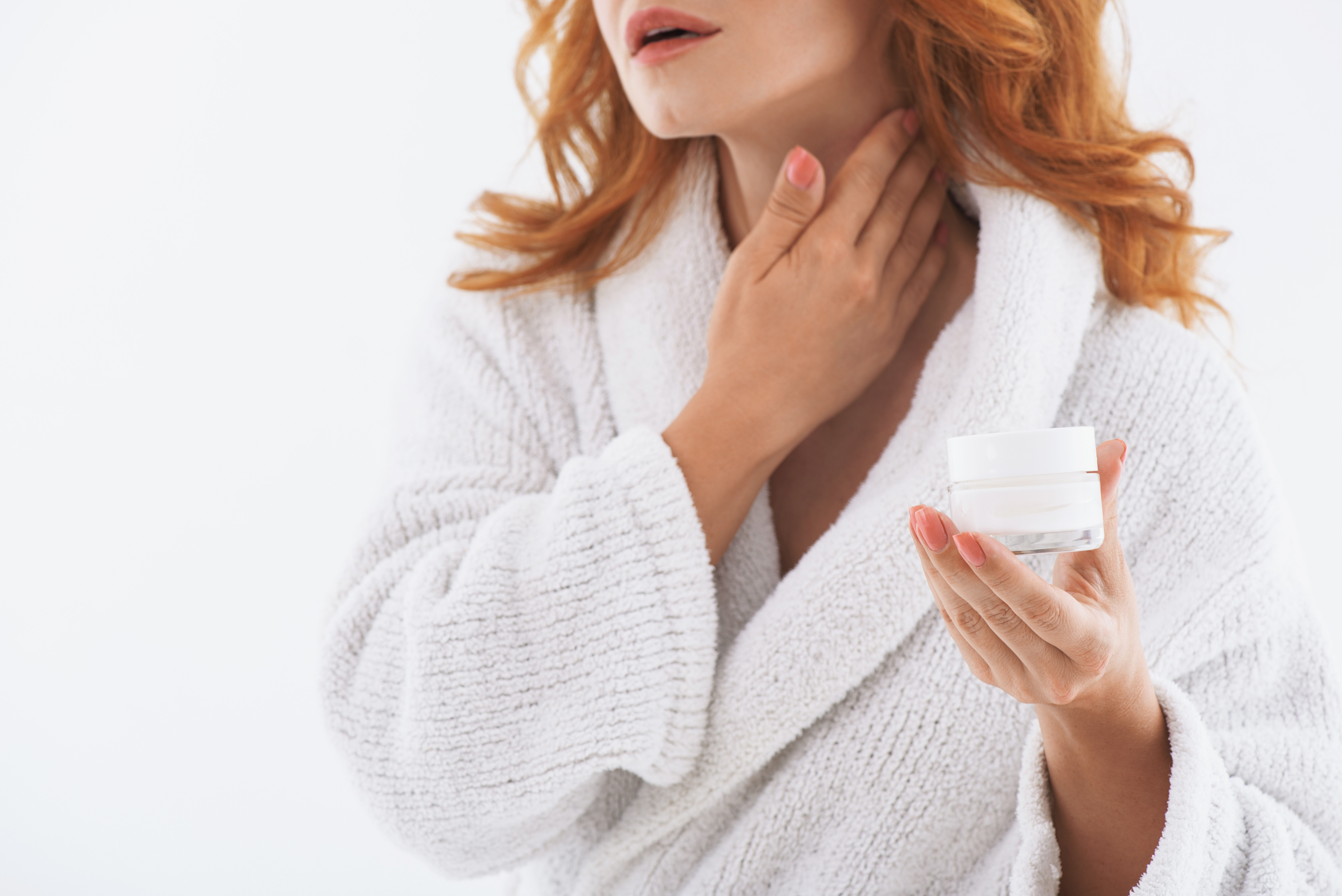
It’s not just your face that needs attention—you should be applying SPF and skincare products to your neck and chest, too.
“Paying attention to your face is great, but it is very important not to forget about the neck and chest…as they are getting the same sun exposure as the face does,” says Soyoki Abo, aesthetician, certified beautician, and founder of Abosoyoki.
“Please also make sure to apply sunscreen and hydrating products on the decolletage area to prevent wrinkles and dark spots,” she adds. “Even if your face looks youthful, if you have wrinkles and dark spots on your decolletage, it can make you look older.”
7
Ignoring the area around the eyes
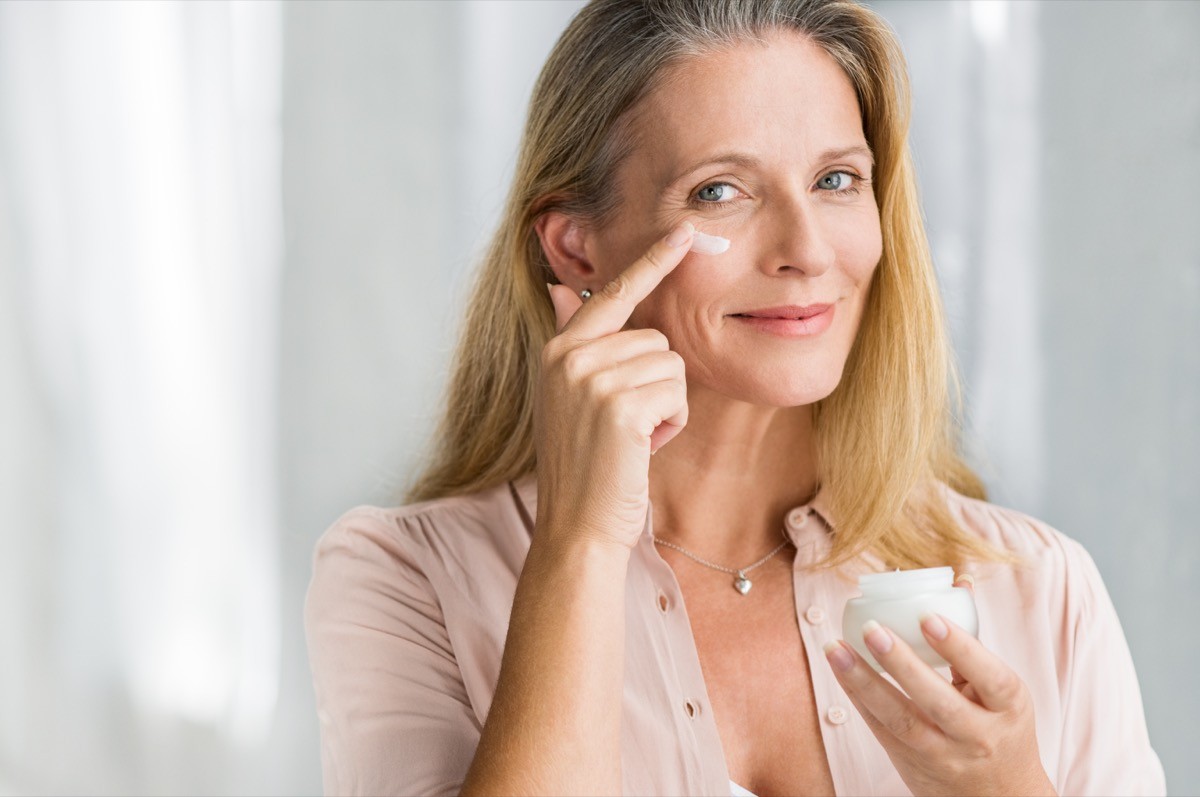
Even if you moisturize and use the appropriate serums, you might be slipping up if you don’t pay attention to the sensitive area around your eyes.
“The skin around the eyes is naturally thinner, more delicate, and more sensitive than on the rest of the face and loses its firmness and elasticity faster. Hence, the signs of aging are always most visible here,” Aparovich notes. “Also, the skin in this area is more dryness-prone and requires regular moisturizing to prevent mimic and age-related wrinkles from forming.”
Instead of using your general face cream around the eyes, Aparovvich suggests a “well-formulated eye cream” to reduce the prominence of wrinkles and bags.
“Eye creams are usually formulated with a more lightweight texture than facial products, so they are better absorbed by delicate skin. Most eye creams are targeted [and] formulated with the delicacy of this specific skin area in mind,” she says. “Usually, they contain higher concentrations of hydrating components and ingredients addressing particular concerns of this skin zone, like caffeine for dark circles or mint derivatives for cooling and puffiness.”
RELATED: 6 Tips to Make Your Eye Cream Actually Work After 50, According to Skincare Pros.
8
Washing your face too much
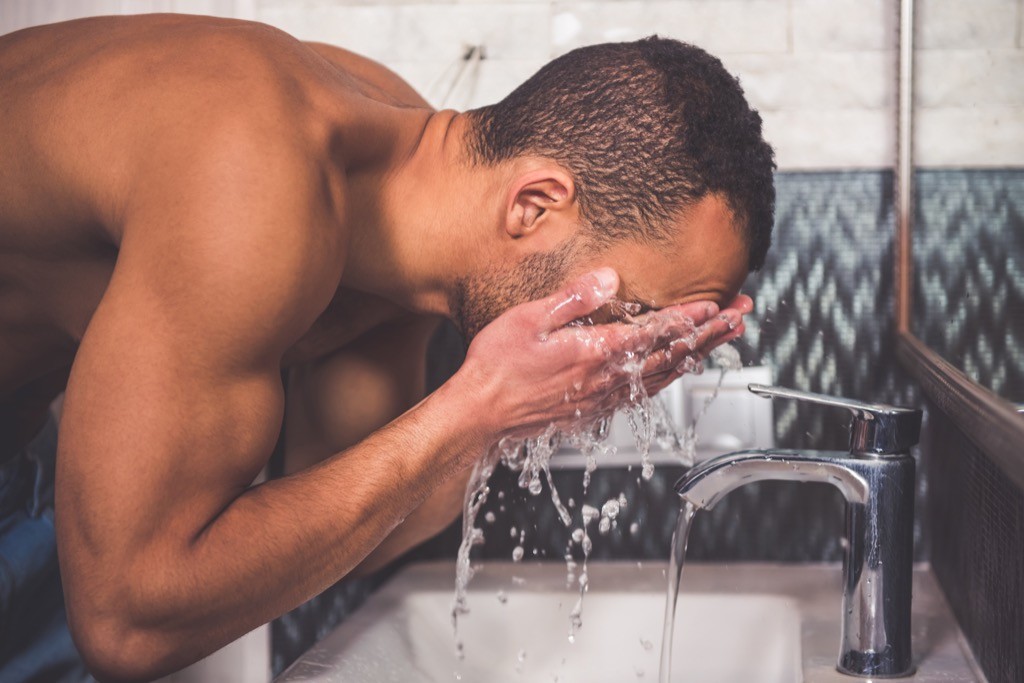
“In general, you should wash your face twice a day,” says Loucas. “Sometimes, [people] feel they have to scrub their face and wash it too often during the day.”
Unfortunately, doing so strips your skin of its natural oils and moisture, which can cause dryness, redness, and irritation.
For those with sensitive skin, Loucas notes that even one wash per day will suffice: “Most of the pollutants and oil cosmetic build-up occurs during the day.” If you wash your face in the evening, you can rinse it with lukewarm water in the morning and then proceed with your skincare routine, he says.
9
Using the wrong cleanser
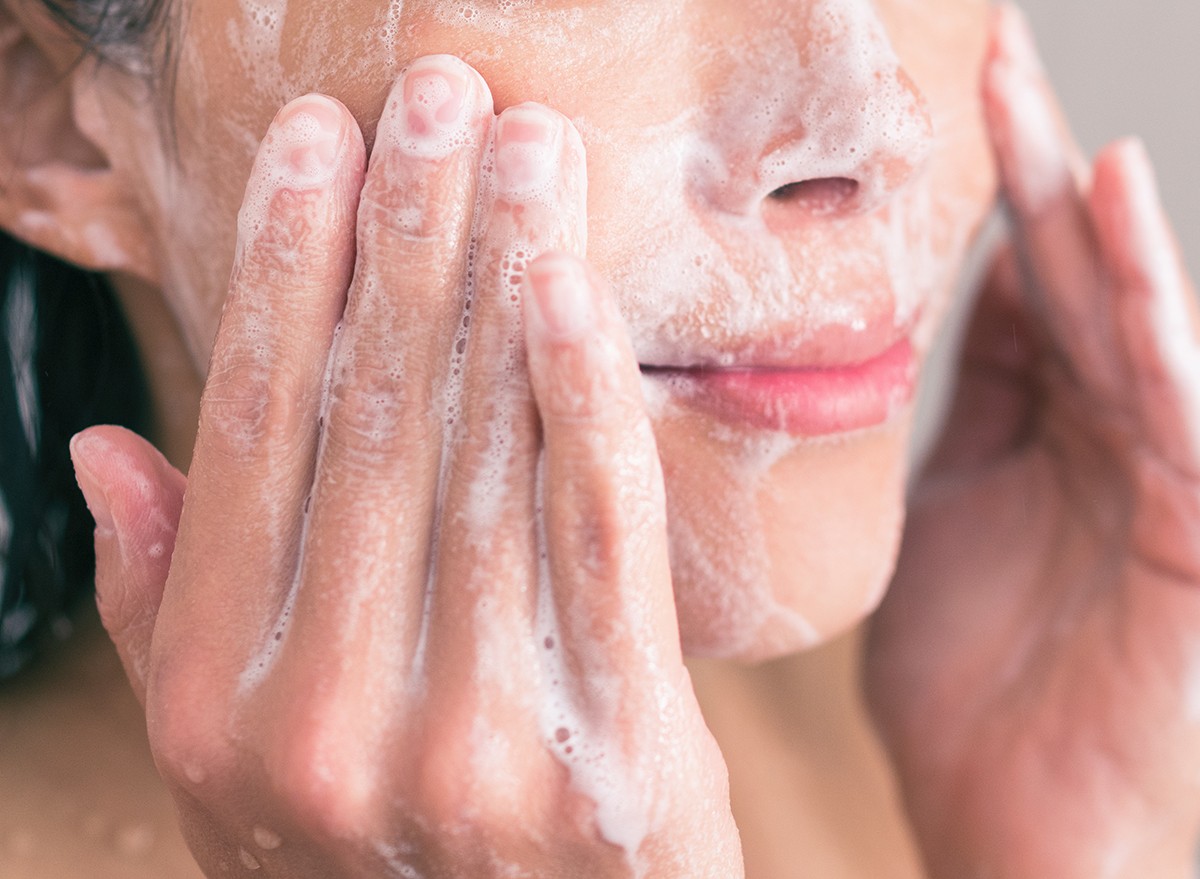
Next, you’ll want to choose an effective cleanser for your skin type.
“Rosacea-, eczema-, and allergy-prone skin require a mild cleanser with soothing ingredients,” says Anna Guanche, MD, a board-certified dermatologist. According to Prevention, those ingredients include ceramides, glycerin, hyaluronic acid, and niacinamide.
“Combination skin [requires] a foaming cleanser, and acne-prone skin [requires] a glycolic, salicylic or benzoyl peroxide-based cleanser,” she adds.
Foaming cleansers are good for combination skin because they both remove oil and provide gentle exfoliation. Glycolic, salicylic, and benzoyl peroxide-based cleansers are especially good for acne as they lift oil, exfoliate, and unclog pores.
RELATED: Understanding Rosacea: 10 Natural Ways to Soothe and Calm Red, Irritated Skin.
10
Washing your face at the wrong time
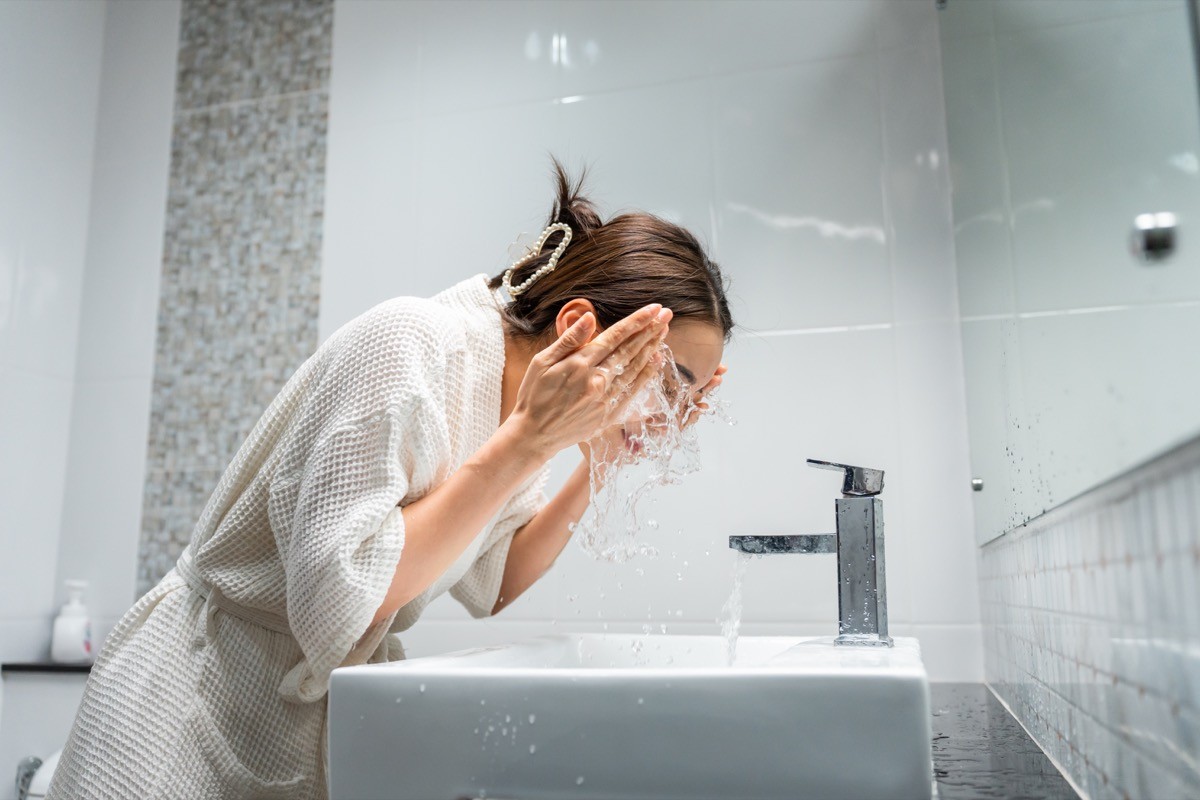
Washing your face should be the last thing you do in the shower or before getting ready for bed.
“When you brush your teeth, you’re leaving behind saliva, toothpaste, [and] bacteria on the skin,” explains board-certified dermatologist Lindsey Zubritsky, MD, FAAD, in a TikTok video.
When these remain on the skin, it can lead to acne breakouts as well as perioral dermatitis (a red rash that forms around the mouth).
Likewise, if you wash your face first in the shower, “some of the residues from the shampoo or conditioner may remain on the skin leading to irritated skin and/or clogged pores,” notes Chacon.
11
Not moisturizing properly
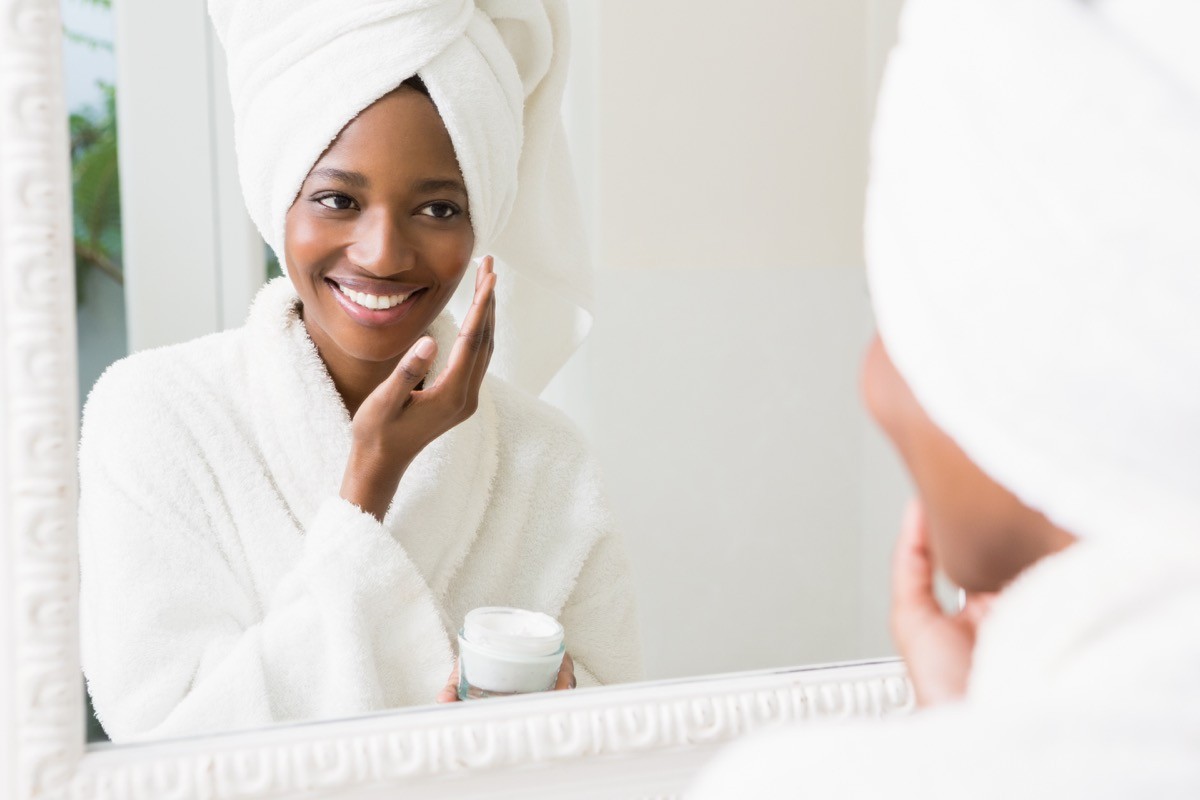
After cleansing, it’s vital to follow up with a hydrating moisturizer for youthful-looking skin—and this is another step you shouldn’t be inconsistent with.
“Replenishing skin with hyaluronic acid plus the proper ceramides is the best way to increase hydration layer by layer,” Lozina says. “By not keeping skin hydrated, skin tends to be prone to sagging and wrinkles, which will make you look older.”
Aparovich notes that a good moisturizer will strengthen the protective barrier on your skin, preventing the absorption of external stressors like dirt and bacteria and protecting from weather-related disruptions like wind and frost.
Well-moisturized skin looks “thicker, denser, plumper, and brighter,” she adds, thereby minimizing any creases and wrinkles.
In need of a new moisturizer? Aparovich recommends looking for ingredients like hyaluronic acid, collagen, phospholipids, and aloe vera extract.
RELATED: 5 Ways Wine Can Improve Aging Skin, Dermatologists Say.
12
Using scented or alcohol-based products

Scented moisturizers and cleansers can be lovely in the moment, but they could do more harm than good in the long run.
“Research has shown fragrances in skincare products are among the most common culprits of irritation. This can be true for all skin types, not just sensitive skin,” says Frieling. “Although the damage from fragrance might not be visible or physically irritating in the moment of application, it can manifest over time.”
Similarly, Frieling notes that alcohol-based skincare products are “intensely drying”—and dryness can accelerate aging.
13
Applying foundation to dry skin

Makeup is supposed to enhance our features and make us feel like we’re putting our best face forward. But if you skip moisturizing and apply your base layer to dry skin, it’s probably not having that positive effect.
“When the skin is naturally dry, it won’t get much nourishment from the percentage of moisturizing components in complexion product formulations,” Aparovich says. “Besides, some foundations can dry out the skin to maintain a matte appearance. Not only will dry skin lose moisture and, therefore, its plumpness and smoothness, but fine lines and wrinkles will get more defined, adding years to your look.”
14
Being rough with your eye makeup
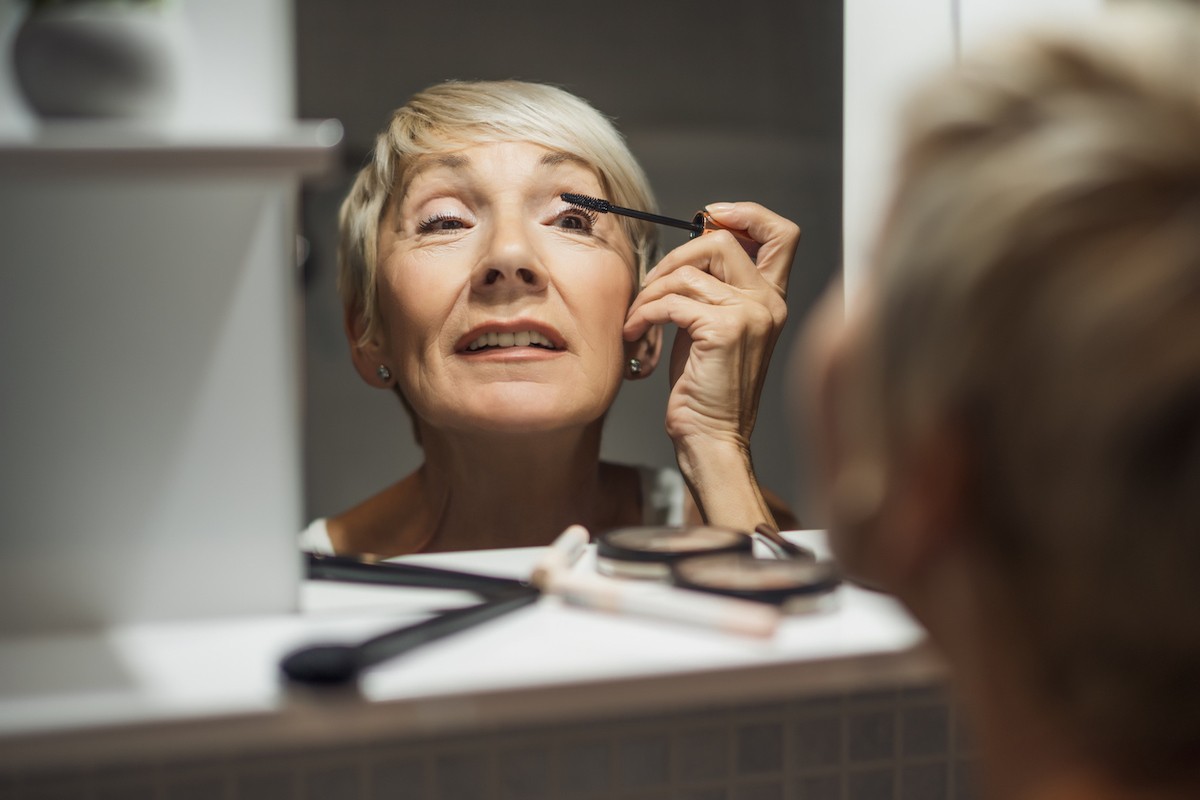
You’ll also want to use a gentle hand when applying your makeup, especially eye makeup.
“The area of the face most likely to exhibit signs of aging from pulling or tugging are the eyes because this is where the skin is thinnest,” Frieling says. “When you apply eyeliner or try to remove makeup, be gentle so you don’t cause damage to the collagen and elastin fibers around the eye, which will speed up aging.”